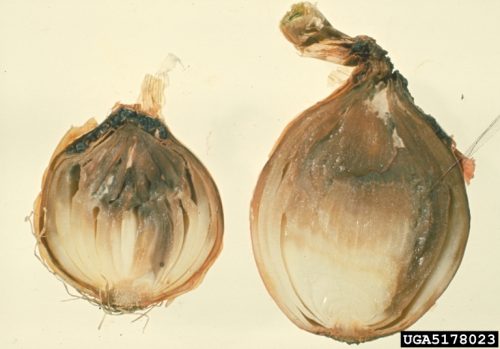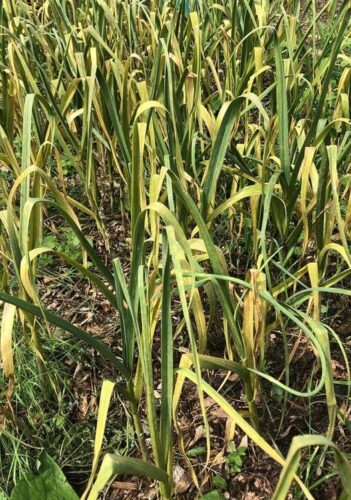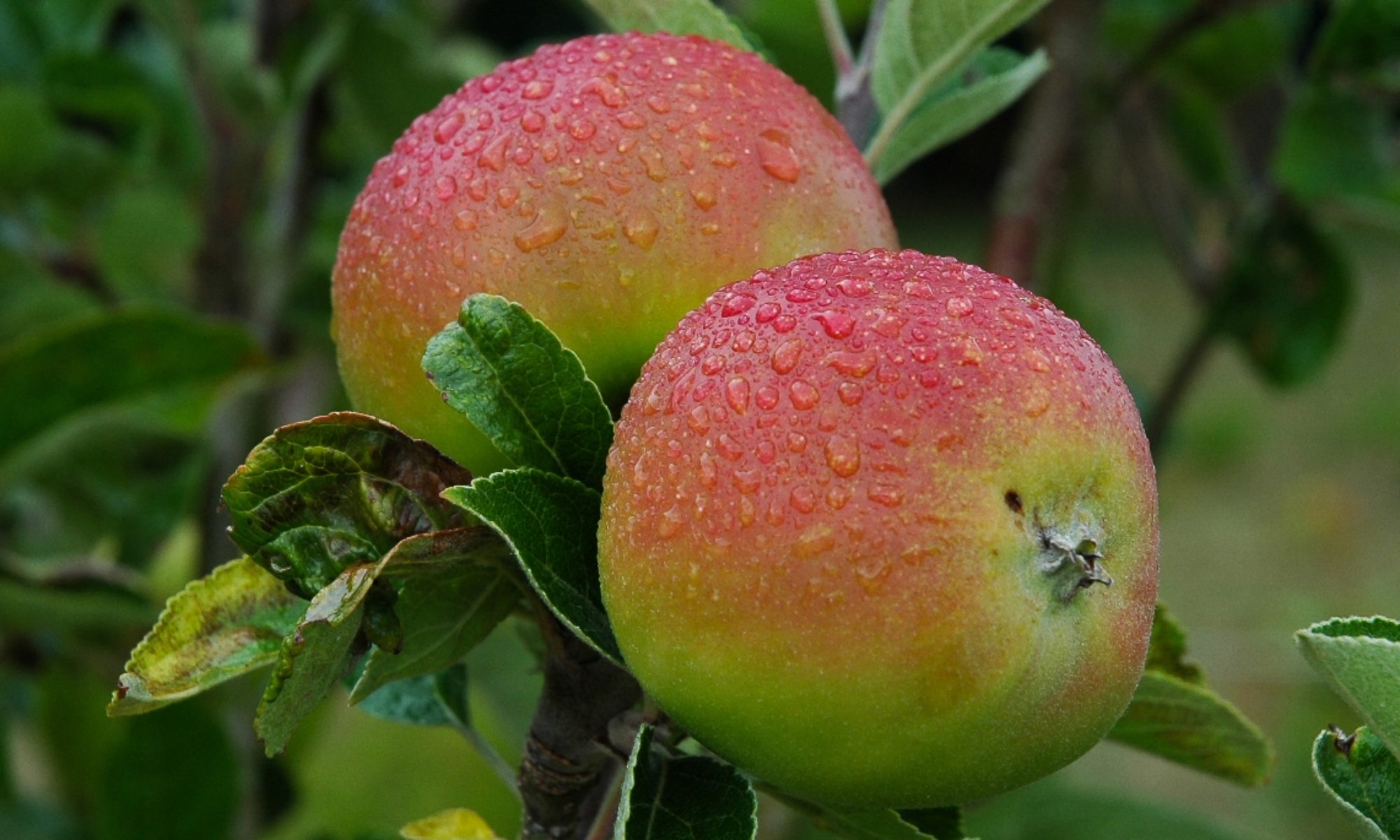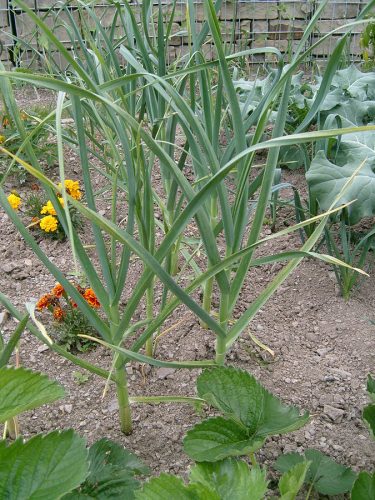Garlic belongs to the onion family and is best planted late in the fall.
You are viewing the mobile-adapted version of the page.
The one for tablets, laptop and desktop also provides general information, such as origin and cultivation.
Garlic (Allium sativum) belongs to the onion family (Allium) and is best planted late in the fall. Garlic is hardy, hibernate well in soil that is not too wet, and after winter picks up growth again in spring. Once the foliage withers (about June), the little b
Bugs
Yellow streaks on leaf: thrips (Thysanoptera).
Plants show tunnels in garlic bul
Deformed, twisted and here and there swollen leaves: stem nematode or onion bloat (Ditylenchus dipsacl).
Fungi & diseases

Bulb and/or plant rots away from top to bottom: neck rot (Botrytis allii).

Orange-brown spores on stem: leek rust (Puccinia porri).
Leaves turn yellow and wilt; lower bulb and roots covered with thick, white mold. There are black spots on the affected parts: onion white rot (Sclerotium cepivorum).
Other
Due to frost, the garlic cloves planted in the autumn sometimes rise above the ground. Dig them in again. Do not do so if it is freezing or if the ground is too wet. Garlic hates too wet soils anyway.

